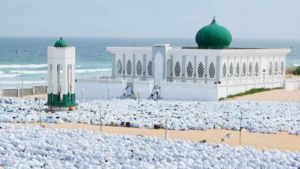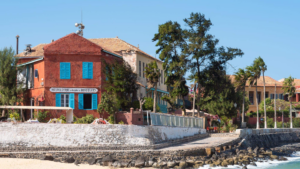Senegal, a vibrant West African nation, is a mosaic of ethnic groups, each contributing to the nation’s rich cultural fabric. This harmonious blend of cultures is not just a testament to the country’s history but also to its commitment to unity in diversity. Here, we explore how Senegal, with its myriad ethnic groups, has become a model of peaceful coexistence.
From the bustling streets of Dakar to the serene villages along the Casamance River, ethnic diversity is celebrated and respected. This respect is rooted in a deep understanding of shared history and mutual interdependence, which has been nurtured over centuries. The Senegalese experience provides invaluable insights into how diverse communities can live together in harmony.
This harmony is not without its challenges, yet it stands as a beacon of hope in a world often divided by ethnic lines. Through this exploration of Senegal’s ethnic diversity, we aim to uncover the threads that bind its people together, weaving a tapestry of unity that is both intricate and inspiring.
The Ethnic Landscape of Senegal
Senegal’s ethnic landscape is a rich tapestry, with the Wolof, Fula, Serer, Jola, Mandinka, and Soninke being the most prominent among its diverse groups. Each group brings its unique traditions, languages, and customs, contributing to a vibrant cultural mosaic. The Wolof, as the largest ethnic group, play a significant role in shaping national culture and politics.
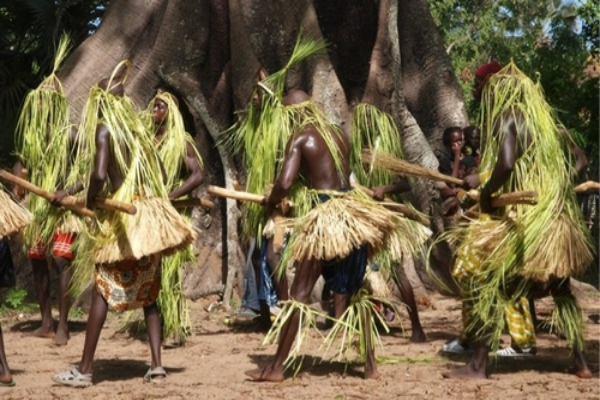
The Fula people, traditionally nomadic herders, have seamlessly integrated their customs into the broader Senegalese culture. Their intricate embroidery and music are now integral parts of the national heritage. Similarly, the Serer, known for their deep historical roots and agricultural prowess, contribute significantly to Senegal’s food security and cultural richness.
The Jola and Mandinka, with their distinct cultural practices, add further diversity to this mix. The Mandinka’s kora music and the Jola’s unique dances are celebrated nationwide. These varied cultural expressions not only coexist but also intermingle, creating a dynamic and ever-evolving national culture.
Historical Perspective
Senegal’s history of ethnic harmony dates back to pre-colonial times, where trade and intermarriage among different groups fostered mutual respect and understanding. This foundation was further solidified during the colonial era, despite the challenges posed by foreign rule. The shared experience of colonization created a collective consciousness that transcended ethnic divisions.
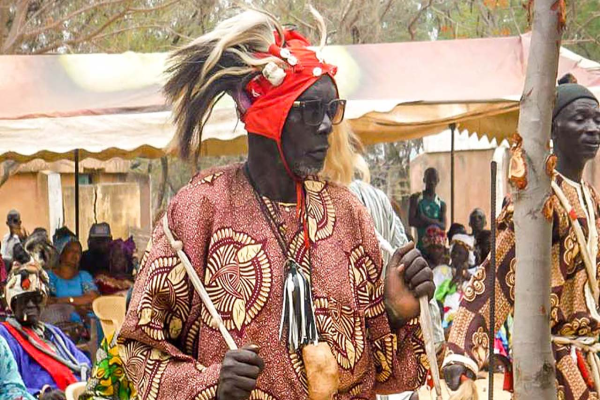
In the post-independence era, under leaders like Léopold Sédar Senghor, Senegal prioritized national unity over ethnic divisions. Senghor’s philosophy of “Negritude” emphasized the value of African heritage, encouraging a sense of pride and unity among all ethnic groups. This approach helped to forge a strong national identity, encompassing all ethnicities.
However, this journey has not been without its challenges. Economic disparities and political tensions have occasionally strained inter-ethnic relations. Yet, the overarching narrative remains one of resilience and unity. Senegal’s history is a testament to the possibility of peaceful coexistence amid diversity.
Cultural Expressions of Unity
In Senegal, music and art serve as universal languages that transcend ethnic boundaries. The popular music genre Mbalax, for example, combines traditional Senegalese beats with modern influences, creating a sound that resonates with people from all ethnic backgrounds. This musical fusion is a metaphor for the country’s approach to ethnic diversity.
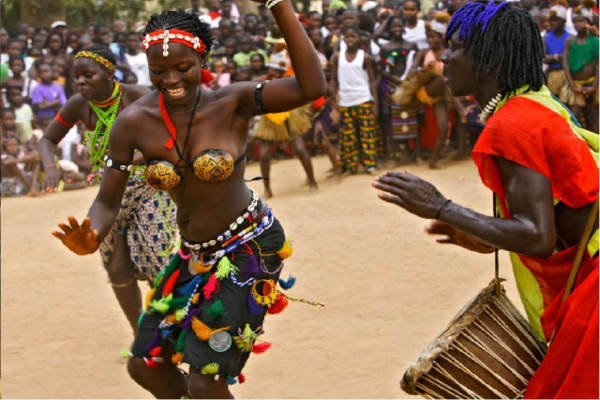
Senegalese literature, often written in French and native languages, is another medium that reflects and promotes ethnic harmony. Through stories and poems, Senegalese authors celebrate the nation’s diverse heritage, often emphasizing themes of unity and commonality over difference.
The Dakar Biennale, a major art exhibition, showcases the works of artists from various ethnic groups. This event not only highlights the artistic talents of the nation but also serves as a platform for dialogue and mutual appreciation among different communities. It’s a vivid demonstration of how art can bridge divides and foster a shared sense of identity.
The Role of Religion in Ethnic Harmony
Islam, practiced by the majority of Senegalese, often in its Sufi form, plays a significant role in promoting peace and unity. Sufi brotherhoods like the Mourides and Tijaniyyah emphasize values of tolerance and brotherhood, which have greatly influenced the country’s approach to inter-ethnic relations. These religious teachings encourage a focus on commonalities rather than differences.
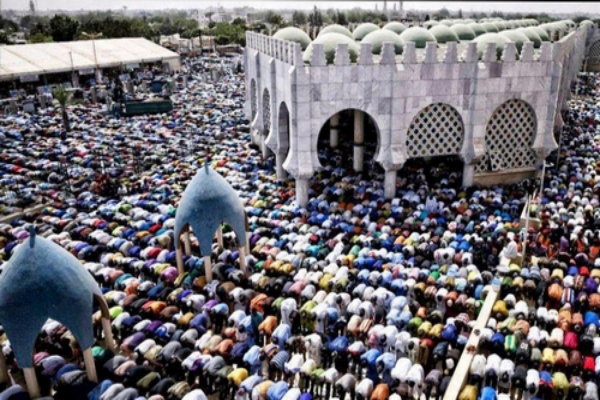
Christian communities, though smaller in number, are fully integrated into the fabric of Senegalese society. Interfaith dialogue and mutual respect are commonplace, with Muslims and Christians often participating in each other’s religious ceremonies. This interfaith harmony is a cornerstone of the country’s peaceful coexistence.
Moreover, indigenous beliefs and practices , still prevalent in some communities, add another layer to the religious landscape. These beliefs, often centered around respect for nature and ancestors, contribute to a broader understanding and acceptance of diverse spiritual perspectives. In Senegal, religion, in its various forms, acts as a unifying force rather than a source of division.
Government Policies and Ethnic Harmony
The Senegalese government plays a pivotal role in maintaining ethnic harmony through inclusive policies. Efforts to ensure equitable representation of all ethnic groups in government and public institutions have been crucial in promoting a sense of belonging among various communities. This representation is not just symbolic; it ensures that the voices of all groups are heard and considered in national decision-making.
Education policies in Senegal also reflect this commitment to unity. Schools teach in French, the national language, while also encouraging the preservation and study of local languages and cultures. This approach fosters mutual respect and understanding from a young age, laying the foundation for continued harmony.
Additionally, the government actively supports cultural festivals and events that celebrate the nation’s ethnic diversity. These events serve not only as entertainment but also as educational tools, promoting a deeper understanding and appreciation of each group’s unique heritage. Through these initiatives, the government reinforces the message that diversity is a national strength, not a weakness.
Challenges to Ethnic Harmony
Despite its successes, Senegal, like any nation, faces challenges in maintaining ethnic harmony. Economic disparities between urban and rural areas, and among different ethnic groups, can create tensions. Access to resources, employment opportunities, and political representation remains a concern for some communities.
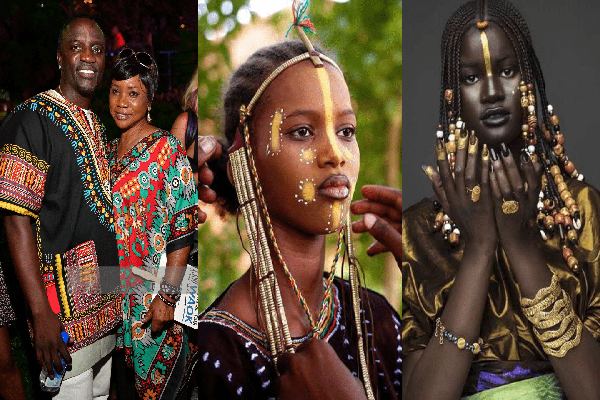
Additionally, the influence of global trends such as the rise in identity politics and religious extremism poses new challenges to Senegal’s traditional ethos of tolerance and unity. Navigating these global influences while maintaining national cohesion requires constant vigilance and adaptation.
Education and the media play critical roles in addressing these challenges. By promoting inclusive narratives and countering divisive rhetoric, they can help reinforce the values of unity and mutual respect. The journey towards lasting harmony is ongoing, requiring the commitment of all sectors of society.
Personal Stories of Unity
At the heart of Senegal’s ethnic harmony are the personal stories of its people. In cities and villages across the country, daily interactions among different ethnic groups reflect a deep-rooted culture of coexistence. These stories, often untold, are powerful examples of how diverse communities can live together in peace.
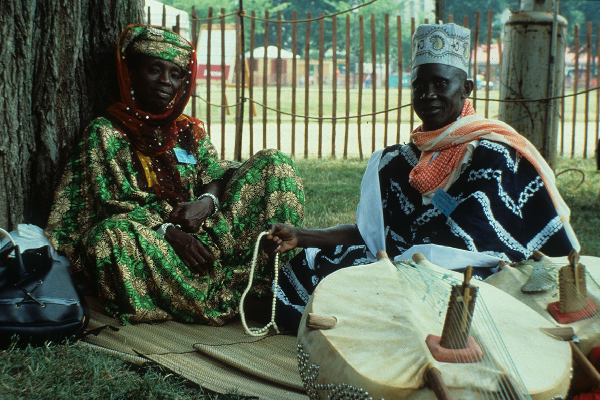
One such story is of a Wolof farmer and a Serer artisan in a small village, who collaborate to improve agricultural practices, blending traditional knowledge with modern techniques. Their partnership is not just about improving yields but also about building bridges between communities.
In urban areas, inter-ethnic marriages are becoming increasingly common, symbolizing a society moving beyond ethnic boundaries. These families embody the spirit of Senegalese unity, where love and respect transcend ethnic lines. They are living proof that diversity can be a source of strength and enrichment.
Senegal’s Role in Regional Ethnic Harmony
Senegal’s approach to ethnic harmony has implications far beyond its borders. As a leader in the ECOWAS region, Senegal’s experience offers valuable lessons for neighboring countries grappling with ethnic diversity. Its active participation in regional peacekeeping and diplomacy highlights its commitment to promoting stability and unity.
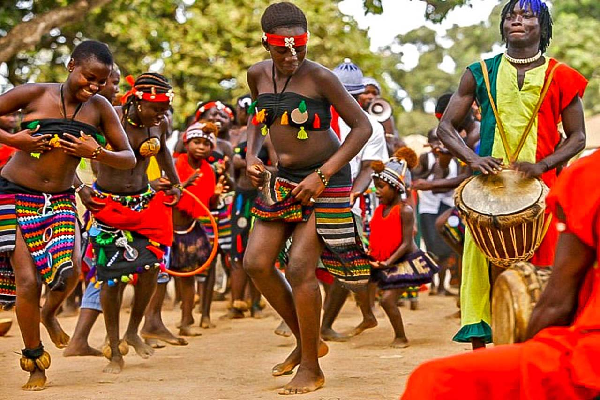
Senegal’s diplomatic efforts often focus on conflict resolution and fostering dialogue among diverse groups. By sharing its experiences and best practices, Senegal contributes to building a more peaceful and cohesive West Africa. The nation’s approach to managing ethnic diversity is not just a national asset but a regional one.
Furthermore, Senegal’s influence extends to international forums, where it advocates for policies that support diversity and inclusion. By doing so, it reinforces the message that ethnic harmony is achievable and beneficial for societal development and peace.
Conclusion
Senegal’s story of ethnic harmony is a beacon of hope and a model worth emulating. Through a combination of cultural integration, religious tolerance, inclusive governance, and everyday interactions, Senegal demonstrates that diversity can be a unifying force. As the nation continues to navigate its challenges, the lessons from its approach to managing ethnic diversity remain invaluable.
For those looking to experience the beauty of Senegal’s diverse culture first-hand, Senegal Shuttle offers a unique opportunity. Whether you’re a tourist seeking to explore the vibrant life of Dakar or a researcher eager to delve into the depths of Senegalese culture, Senegal Shuttle provides reliable, comfortable, and culturally insightful travel experiences. Embrace the spirit of Senegal with Senegal Shuttle, where every journey is a step towards understanding the true essence of harmony in diversity.


